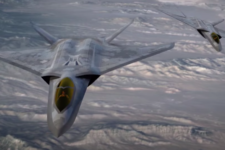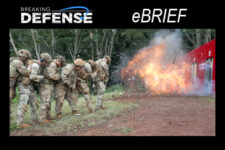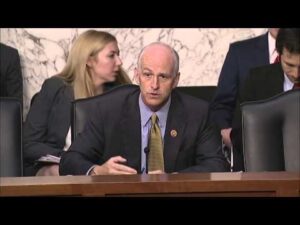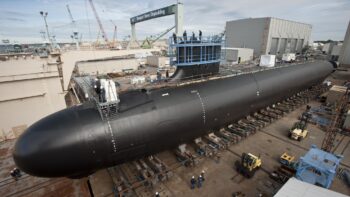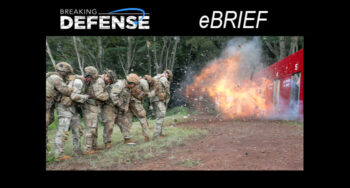WASHINGTON: Jon Kyl, the retired senator named by Arizona Gov. Doug Ducey to serve as John McCain’s replacement until a special election in 2020, will take a seat on the Senate Armed Services Committee.
Kyl will serve on the airland, seapower and strategic forces subcommittees, a series of changes unveiled along with Jim Inhofe’s formal seating as SASC chairman. Kyl has long shown a keen interest in missile defense and nuclear issues. Alaska Republican Dan Sullivan takes Inhofe’s seat as the chair of the readiness subcommittee.
The shifts come in the wake of McCain’s death last month, and just weeks before the midterm elections in which the Democrats are expected to take control of the House, which would have it’s own knock-on effects on the committee structure there.
Kyl — who retired from the Senate in 2013 — rejoins the body with a long history of strong support for spending on missile defense and opposition to any cuts to the number of nuclear warheads retained by the United States.
That support lines up well with the National Defense Strategy released by the Pentagon earlier this year, and continued concerns within the Pentagon and White House over advances made by China and Russia in offensive and defensive missile capabilities, as well as long-term missile threats presented by North Korea and Iran.
If the House is controlled by the Democrats next year, however, the House Armed Services Committee might complicate the administration’s plans in to expand and modernize the country’s nuclear arsenal. Speaking at the Defense News Conference on Wednesday, Rep. Adam Smith, the potential HASC chairman, said “nuclear weapons” would be his top priority.
“I think the Republican Party and the Nuclear Posture Review contemplates a lot more nuclear weapons than I — and I think most Democrats — think we need. We also think the idea of low-yield nuclear weapons are extremely problematic going forward,” Smith added. “When we look at the larger budget picture, that’s not the best place to spend the money.” (However, as Barack Obama and others have demonstrated over the years, Democrats often change their tune on nuclear weapons when granted the mantle of power.)
The Pentagon’s long-awaited missile defense review remains a work in progress, but “will be coming soon to a theater near you,” according to John Rood, undersecretary of Defense for policy. Speaking at an event on Capitol Hill earlier this week, Rood said that there’s “hope to have that out in the very near term, in the next few weeks, as we just are wrapping up some of the remaining items.”
The review was originally expected to be released late last year, but has been repeatedly delayed as the scope of the study was expanded from ballistic missiles to encompass all missile threats, including hypersonics.
Rood said that the review will try to answer “what is that policy framework, what are the developments in the international security arena that have led us to make alterations to our approach, how are we approaching it in terms of working with friends and allies, looking at trades across the department for competing needs or competing ways to address some of the security concerns that we have.”
After leaving the Senate, Kyl worked as a lobbyist at Covington & Burling, where his clients included defense contractors Northrop Grumman and Raytheon, companies he will now have a hand in overseeing.
SASC Chairman Inhofe will likely take a softer line with Pentagon acquisition programs and the performance of defense contractors than did McCain, who was known for his fiery rhetoric at confirmation and oversight hearings.
Top defense insights from 2024
A curated look at standout opinions and analysis covering topics like uncrewed systems, NATO partnerships, US-Saudi defense dynamics, and evolving warfare strategies, spotlighting key issues shaping the global defense landscape.

